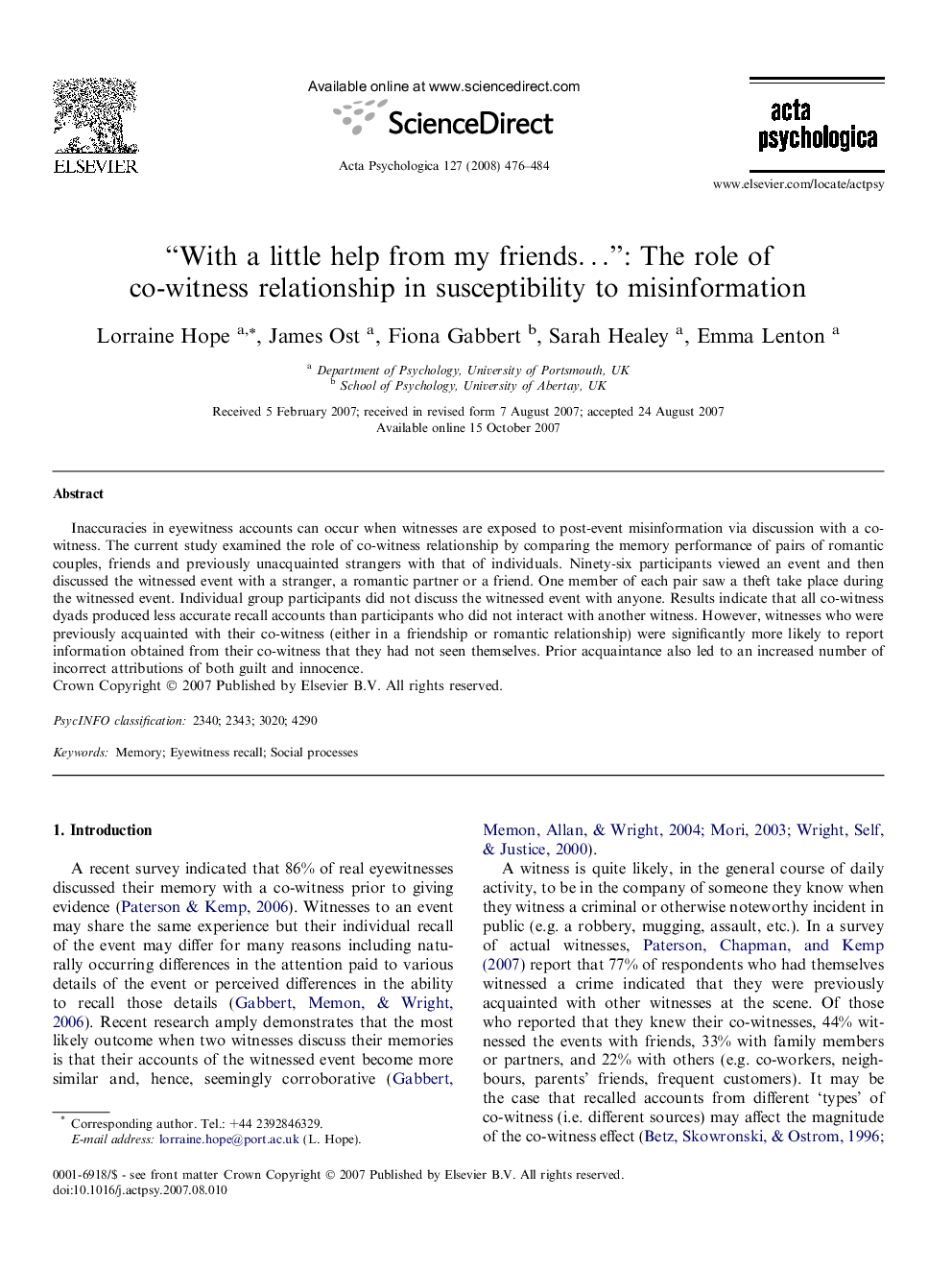| Article ID | Journal | Published Year | Pages | File Type |
|---|---|---|---|---|
| 920511 | Acta Psychologica | 2008 | 9 Pages |
Inaccuracies in eyewitness accounts can occur when witnesses are exposed to post-event misinformation via discussion with a co-witness. The current study examined the role of co-witness relationship by comparing the memory performance of pairs of romantic couples, friends and previously unacquainted strangers with that of individuals. Ninety-six participants viewed an event and then discussed the witnessed event with a stranger, a romantic partner or a friend. One member of each pair saw a theft take place during the witnessed event. Individual group participants did not discuss the witnessed event with anyone. Results indicate that all co-witness dyads produced less accurate recall accounts than participants who did not interact with another witness. However, witnesses who were previously acquainted with their co-witness (either in a friendship or romantic relationship) were significantly more likely to report information obtained from their co-witness that they had not seen themselves. Prior acquaintance also led to an increased number of incorrect attributions of both guilt and innocence.
